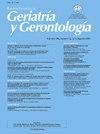巴西老年人的经济状况
Q3 Medicine
引用次数: 0
摘要
背景和目的本研究的目的是确定巴西老年人的财务状况。此外,它旨在评估这种看法是否会根据社会经济和人口状况而有所不同。就目前所知,这是第一个在代表性案例样本中评估老年人财务状况的研究。材料与方法对1129名60岁及以上的巴西人进行了调查。感知财务健康是通过一组23个项目来评估的,这些项目分布在四个方面:财务安全、财务安宁、财务自由和对财务管理的满意度。分析方法包括描述性统计、卡方检验和回归分析。结果结果表明,大多数老年人表现出较高的财务幸福感。很大一部分老年人(40%)的财务状况仍然很差。在分析构成财务健康的维度时,我们发现,尽管老年人大多对自己管理资源的方式感到满意,但很少有人仍然感到财务安全,特别是关于他们未来的财务能力。同样值得注意的是,尽管财务自由取得了良好的结果,但仍有相当一部分老年人认为这种自由主要是指满足日常消费需求,但很少足以支持更大的财务支出,如度假旅行。社会地位较低的人、非白人、受教育程度较低的人和没有自己家的人的情况最差。政府、金融系统和社会需要团结起来,防止金融数字化、缺乏退休财务准备以及社会保障制度的变化对老年人的财务福祉产生负面影响。本文章由计算机程序翻译,如有差异,请以英文原文为准。
Financial well-being of the older adult Brazilians
Background and objective
The objective of this study is to identify the perceived financial well-being of older adult Brazilians. Additionally, it aims to evaluate whether this perception differs according to socioeconomic and demographic profiles. As far as is known, this is the first study to assess the financial well-being of the older adult in a representative sample of cases.
Materials and methods
A survey was conducted with 1129 Brazilians aged 60 or older. Perceived financial well-being was assessed using a set of 23 items distributed across four dimensions: financial security, financial tranquility, financial freedom, and satisfaction with financial management. The analysis techniques included descriptive statistics, chi-square tests, and regression analysis.
Results
The results indicate that most older adult exhibited high levels of financial well-being. A significant portion of the older adult (40%) still show shallow levels of financial well-being. When analyzing the dimensions that form financial well-being, it was found that although the older adults are mostly satisfied with how they manage their resources, few still feel financially secure, especially regarding their future financial capacity. It is also noteworthy that despite good results for financial freedom, there is still a significant portion of the older adult for whom this freedom mainly refers to satisfying day-to-day consumption needs, but is rarely enough to support larger financial expenditures such as a vacation trip. The worst levels were identified among those from lower social classes, non-whites, those with lower levels of education, and those without their own home.
Conclusions
The government, the financial system, and society need to unite to prevent financial digitalization, the lack of financial preparation for retirement, and changes in social security systems from negatively impacting the financial well-being of the older adult.
求助全文
通过发布文献求助,成功后即可免费获取论文全文。
去求助
来源期刊

Revista Espanola de Geriatria y Gerontologia
Medicine-Medicine (miscellaneous)
CiteScore
1.90
自引率
0.00%
发文量
62
审稿时长
85 days
期刊介绍:
Una revista de gran prestigio por sus artículos originales de investigación y revisiones. Permite cubrir todas las áreas de la medicina pero siempre desde la atención al paciente anciano, y está presente en los más reconocidos índices internacionales.
 求助内容:
求助内容: 应助结果提醒方式:
应助结果提醒方式:


